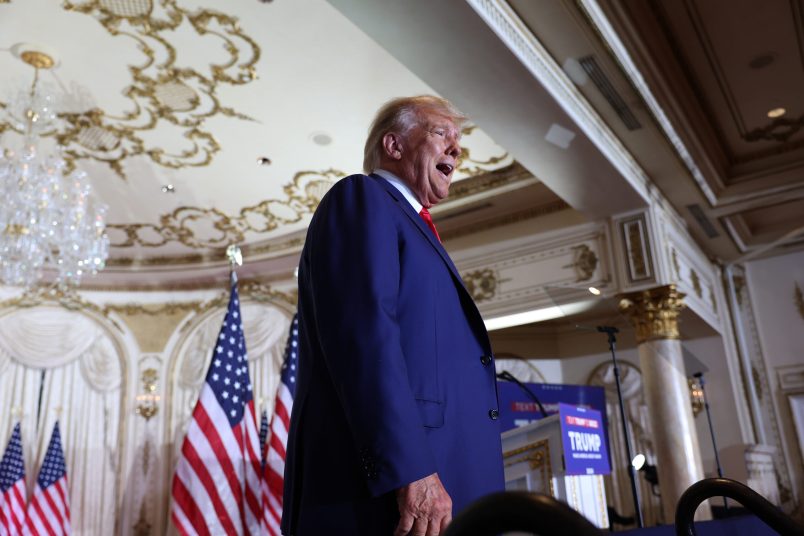Federal prosecutors on Thursday offered a look at the way in which they plan to handle a central question to their prosecution of President Donald Trump: how will they protect secret materials at the heart of one of the most publicized cases in American history?
It’s a complicated dance of an issue, one that’s governed by the Classified Information Procedures Act (CIPA), put in place to prevent government secrets from being disclosed in cases where they’re relevant to a prosecution.
The question will arise throughout the discovery phase, as the government shares information with Trump’s defense attorneys about what he allegedly held onto and its importance — and as Trump may assert the need to use classified materials at trial. It remains unclear what the government and Trump may try to introduce at trial.
Per the Thursday filing, federal prosecutors will include “all documents with classification markings recovered from Mar-a-Lago” in the first batch of classified discovery that Trump’s lawyers are eligible to view with preliminary security clearances. Prosecutors said they would make the records available at a secure facility in the Miami federal courthouse next week. That’s a total of 340 records recovered, prosecutors said, though some remain so sensitive that defense attorneys will need additional clearances before reviewing them.
Trump had asked U.S. District Judge Aileen Cannon for the Southern District of Florida earlier this week to delay setting a trial date indefinitely. Trump said that Cannon should hold back due to the presence of secret evidence, Trump’s busy schedule, and the upcoming 2024 presidential election.
The DOJ dismissed that as “border[ing] on frivolous,” and hit back at one point against claims from Trump’s attorneys that the case would involve “facts concealed from public view.”
“Defendants also twice raise the specter of ‘secret’ evidence and state their opposition to ‘any facts being concealed from public view . . . .,'” federal prosecutors wrote in a footnote in the filing. “If Defendants intend to seek permission to disclose classified information to the public, that would be the very type of ‘graymail’ CIPA was enacted to prevent.”
Prosecutors offered an overview for Cannon of how they plan to approach sharing classified information with Trump’s lawyers before the trial.
Most of that, prosecutors said, will occur next week. In addition to the classified-marked records, Smith’s team said that they would hand over “a small number of witness statements and memorialization of those statements that contain classified information.”
Prosecutors also said that they’ve identified for the defense roughly 4,500 pages of “key” documents among the 800,000 of unclassified records handed over.
Special Counsel Jack Smith had asked Judge Cannon to set a trial date of Dec. 11 in the matter. Trump, in asking for Cannon to delay the trial indefinitely, proposed no alternate date, suggesting only that a trial before the election would be unfair.
Cannon has yet to issue any rulings in the case which are out of the ordinary, as the country’s legal and political communities watch to see if she’ll do anything which echoes how she handled a civil case which Trump filed last year against the DOJ: in that matter, she ordered a halt to the Mar-a-Lago investigation’s use of records seized from the resort, and said in one ruling that Trump should receive special treatment due to his status as a former president.
DOJ made a brief reference to that proceeding in its Thursday filing, noting that Trump had made a similar argument in last year’s civil case.
Trump’s attorneys had argued that the election made selecting impartial jurors impossible, claiming that Trump is the presumptive GOP nominee while nudging Cannon to treat him as such.
Prosecutors replied that she should ignore that; after all, jurors’ political inclinations “will not appreciably change after the completion of the election.”



